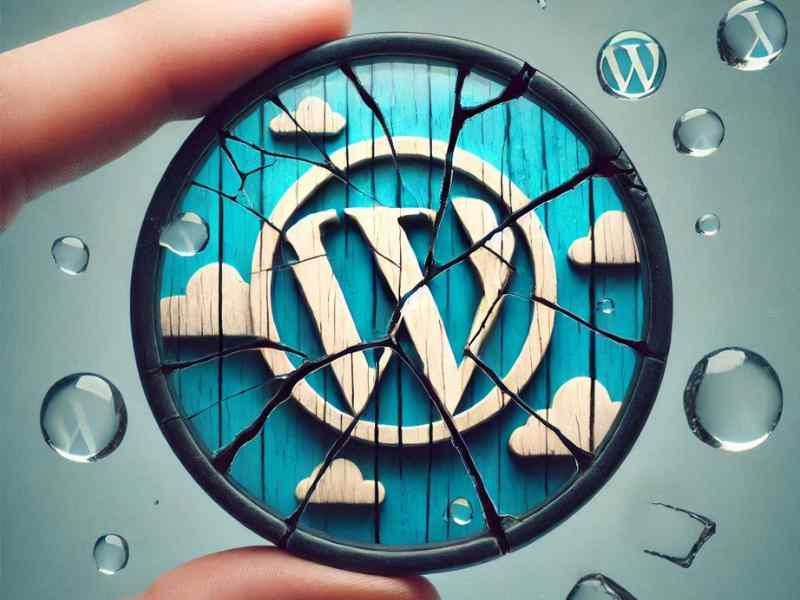
If you're a fan of the biggest CMS in the world, you must be feeling a little queasy about your choice right now. Cracks are starting to show under the management of Wordpress and Wordpress.org...
In the world of web development and content management systems, few things are as iconic as WordPress. Created by Matt Mullenweg, WordPress powers around 40% of the world's websites, making it literally the CMS that runs the internet. But giants have their battles, and there's a massive feud happening between WordPress and WP Engine that has been nothing short of dramatic.
What is WPEngine?
WP Engine is a leading managed hosting platform specifically designed for WordPress websites, sitting on top of the open-source code provided by WordPress. Founded in 2010 by Jason Cohen, WP Engine provides a range of services to help businesses and individuals create, manage, and optimize their WordPress sites. Essentially selling a system to help make the Free Open-Source WordPress easier to use for users and easier to host for developers.
The Spark
The conflict began in mid-September 2024 when Matt Mullenweg, the co-creator of WordPress and CEO of Automattic, publicly criticized WP Engine in a blog post. He accused the hosting giant of not contributing enough to the open-source project and misleading customers by using the "WP" brand, which he claimed confused users into thinking WP Engine was officially associated with WordPress.
The Legal Fireworks
So what started as a passive-aggressive blog post quickly escalated into a full-blown legal battle. WP Engine sent a cease-and-desist letter to Mullenweg and Automattic, demanding they retract their statements. WP Engine argued that their use of the WordPress trademark was covered under fair use. In response, Automattic fired back with their own cease-and-desist letter, accusing WP Engine of breaching WordPress and WooCommerce trademark usage rules.
The Community's Reaction
The feud has sent ripples through the WordPress community. Contributors to the open-source project and leaders of companies in the ecosystem have expressed concerns about the conflict, calling for governance changes and highlighting issues with Mullenweg's leadership. The turmoil has also caused disruptions for businesses that rely on both WordPress and WP Engine for their websites.
The Impact
The ongoing feud has significant implications for the web development community. Critics fear that the conflict could severely hinder a platform that supports nearly half the web. The drama highlights the challenges of balancing open-source ideals with commercial interests and underscores the importance of clear communication and collaboration within the tech ecosystem.
And there's more!
To add to the feud, the CEO Matt Mullenweg has also announced that almost all services on WordPress.org might be paused for 2025. This decision stems from a combination of factors, including the ongoing legal battles with WP Engine and the need to give volunteers a break. Wordpress.org is the repository for the WordPress software itself, themes, plugins, and the developer's knowledge base. It also provides news about development and other functions for the community. You can imagine that as this is the one-stop shop for WordPress developers to get support and learning, the potential decision to pause this resource is not looked on favourably.
The potential implosion of these WordPress services, whether they survive or not (hint: They will survive) will certainly leave a bad taste and a lasting feeling of anxiety or mistrust and this is a good thing for all the other CMSs out there. WordPress is often the chosen platform because it's the biggest and nobody gets fired for choosing the biggest, do they?
WordPress is the biggest but in my opinion not the most user-friendly, stable or secure system out there, mainly because of the way WordPress sites built on the cheap are generally created using fragmented plugins with no thought for how everything fits together for the site user or the editor.
Has the damage been done? Do clients understand the fragility of the platform in the hands of the current owner(s) and the potential for chaos with any future development?
If your site or project is coming to the end of its life and you are at the stage of choosing the CMS or developer, or you want to move from WordPress to something with better support then let's have a chat.
It will be an interesting few months, I'm just glad my CMS of choice is Umbraco 😏
I'd love to hear your comments or thoughts on my LinkedIn post
Hey, I really could do with your help! If you find this article interesting, could you please do me a favour by either sharing it on your site or on social media. I would love to hear yours and other peoples' thoughts on this subject. And if this or any other content on the site has helped you and you would like to show your appreciation, then you can always
buy me a coffee ☕️ It would make the time I put into this more than worthwhile! Thank you 😃

